This Saturday, my beloved Oak Park Farmers Market reopens for the season. It can’t even tell you how excited I am. Zuzu has swim practice across the street from the farmers market from 9-10:30 am and my plan is to spend that entire hour-and-a-half browsing at the market. Ninety minutes at the farmers market is not too much for me.
As a home food preservation enthusiast, I rely on the farmers market for seasonal produce more than many people. As a result, I have strong beliefs about how to get the most out of shopping at the farmers market. The Kitchn recently posted an article on farmers market etiquette and shopping tips. While I liked The Kitchn’s piece, I did not agree with all of their so-called rules. So I thought that I would take this opportunity at the beginning of farmers markets season to offer my thoughts on how to shop at a farmers market based on my dozen years of experience.
- Embrace the experience. Shopping at the farmers market is not like shopping at the grocery store. In other words, don’t come with a list, or at least, if you do come with a list, be prepared to abandon it. Don’t be in a rush to get out of there. Wander around. Admire the beautiful displays. Ask questions of the farmers and your fellow shoppers. (Warning: I give a lot of unsolicited cooking advice at the farmers market. Like whenever I hear someone pick something up and say, “I wonder what this is.”) Think of shopping at the farmers market less like an errand and more like an outing — one where you come home with a lot of yummy food. If your partner and kids are likely to enjoy this type of outing, by all means bring them. But if you’re the only one in your family who enjoys the market on these terms, go alone and consider it restorative personal time — restorative personal time where you come home with a lot of yummy food.
- Be prepared. Bring cash, preferably small bills. Some vendors will take credit cards, particularly if they sell more expensive products like meat, but many will not. Bring your own bags and if you plan to buy a lot, consider bringing a wagon or something similar to transport your items. You may have to park a block or two away and produce can be crazy heavy. Now that my kids are seven and ten, the only use I have for my Radio Flyer wagon is to haul corn and tomatoes to my car every week.
- Shopping at the farmers market will not replace going to the grocery store. There, I said it. You won’t find everything your family needs to get through the week at the farmers market unless you have made eating seasonally and locally your personal religion. I have a picky eater on my hands and if he wants to eat grapes and cantaloupe all year long, then by God, I am going to buy him grapes and cantaloupe all year long — mostly so that he doesn’t get scurvy. During the spring and summer, I shop at the farmers market because I love having local, seasonal produce to cook with and preserve. But I do so knowing that I will still have to buy almost as much as I usually do at the grocery store because my family cannot subsist on strawberries, rhubarb and asparagus for the entire month of June.
- Triage. My philosophy of life is triage. What has to get done today? Do that first. This philosophy holds true at the farmers market as well. What is here that won’t be here next week? Get that first. Shopping at the farmers market can be overwhelming, especially in the heart of the summer when everything seems to get ripe at once. It is very easy to buy more than you can use because there is just so much beautiful produce. (If overbuying is a problem for you, consider learning how to preserve fruits and vegetables.) When I feel like I don’t know what to buy first at the farmers market, I ask the farmers how much longer the season is for each fruit or vegetable I am tempted by. And then I focus on the produce that is at the end of its season. Some fruits and vegetables, like sour cherries, really will only be at the market for a week or two. Get them while you can and save the peaches and tomatoes for another week.
- Develop relationships. One of the benefits of shopping at a farmers market as opposed to a grocery store is the opportunity to get to know the farmers and vendors. Try to frequent the same market and the same stands at the market — especially if you like what you buy — and get to know the people working there. (This is easier to do if you go early or late when the market is less busy.) If you develop relationships with the vendors, you can get special treatment. The article from The Kitchn says not to bargain at the farmers market. I agree with that if you are not a regular customer. But I get bargains and deals all the time from the vendors at the stands where I shop every week. They know that I buy a lot of produce and are happy to cut me a deal on a flat of berries or a dozen sweet peppers. They also will save my favorite items for me if they are in danger of selling out before I get there and even bring me special crops that they might not bring otherwise. I had a farmer bring me a flat of quince last year after I asked him about it, and he normally doesn’t even sell quince.
- Know what is and is not a bargain. I often hear people complain about the prices at the farmers market. I know that some of the produce can seem outrageously expensive but it is important to understand the labor that goes into harvesting some of these crops, especially for a small operation. Yes, you can find blueberries that were grown far away on a huge farm at the grocery store for a lot less money. But they won’t taste as good as local blueberries. If you really can’t stomach paying $8 for a small pint of berries, forego them in favor of the crops that are bargains at the farmers’ market, like corn, zucchini, fresh herbs and bell peppers.
- Push yourself. One of the best thing about the farmers market is that you will see crops there that you will never see in a grocery store: things like gooseberries, black and red currants, Damson plums, and ground cherries. These are crops that are not in enough demand or are too difficult to grow in the quantities needed for commercial sale. If you are going to the farmers market and only buying corn, peaches and tomatoes — crops that you are familiar with or that you can get at the store — you are missing out on what makes farmers markets different and special. So don’t turn your nose up at some of these weird or unfamiliar items. Ask the farmers what to do with them, or just do an Internet search. But push yourself to buy something new at least three or four times a season.
- Don’t get hung up on labels. Don’t assume that all the produce at the farmers market is organic and don’t be put off by that. The great thing about the farmers market is that you can talk to the farmers and ask all your questions directly of the grower. Ask if the produce is organic and if it is not, ask why not. You may be surprised that the farmer has a perfectly good reason for not maintaining an organic farm.
I hope that you are as excited as I am about the start of farmers market season. If you live in the Midwest, like I do, it will still be several weeks before we start seeing those summer fruits that we all love. But I will be content with strawberries and asparagus, at least for a while.
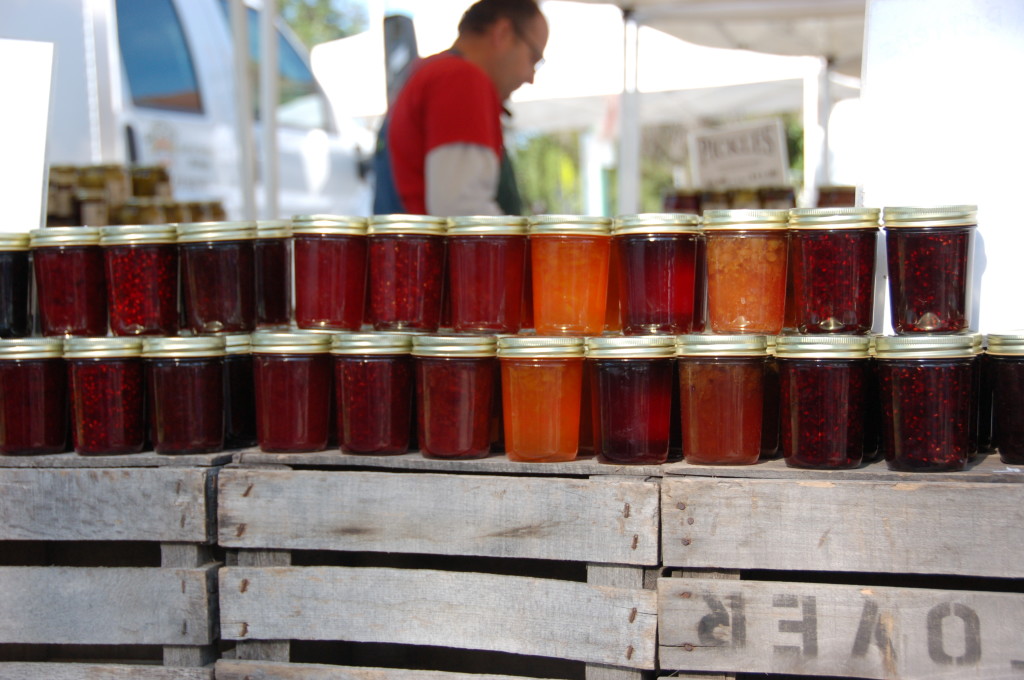
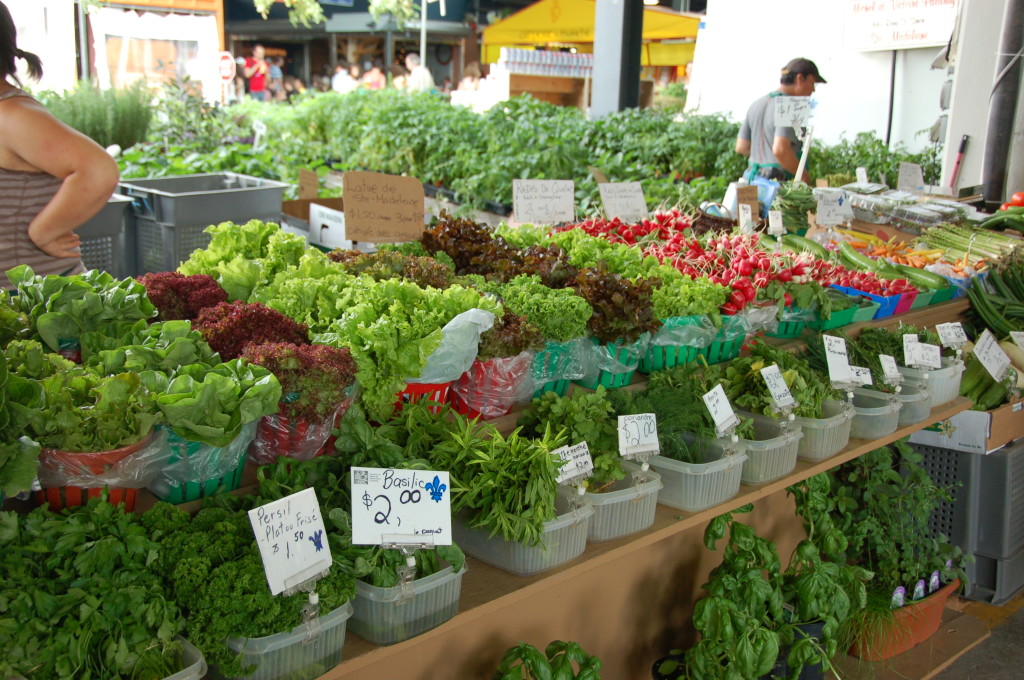
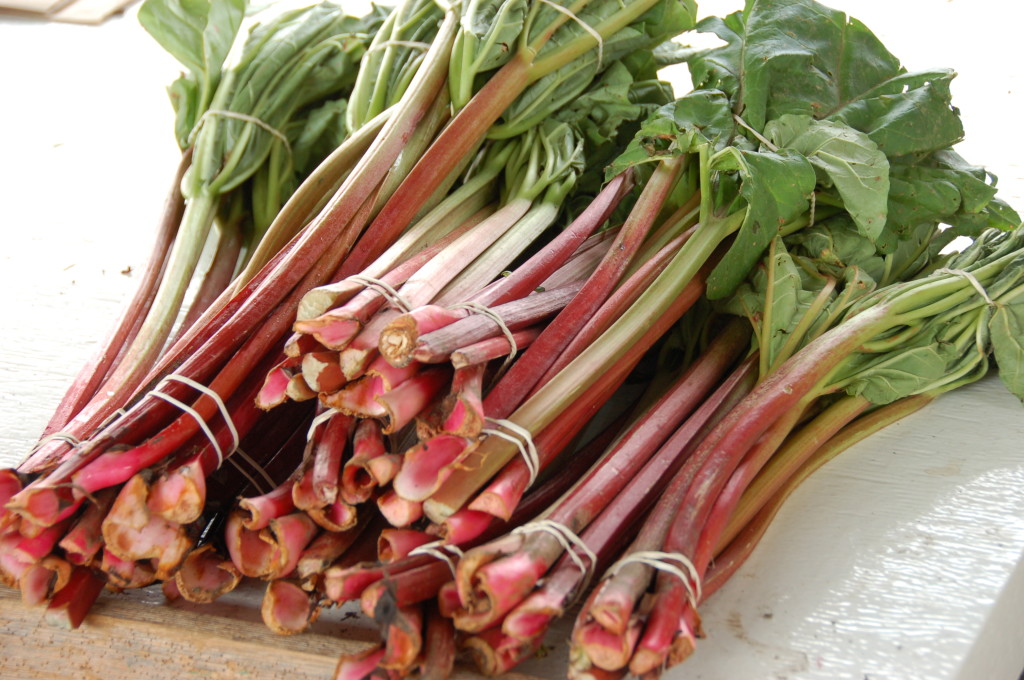
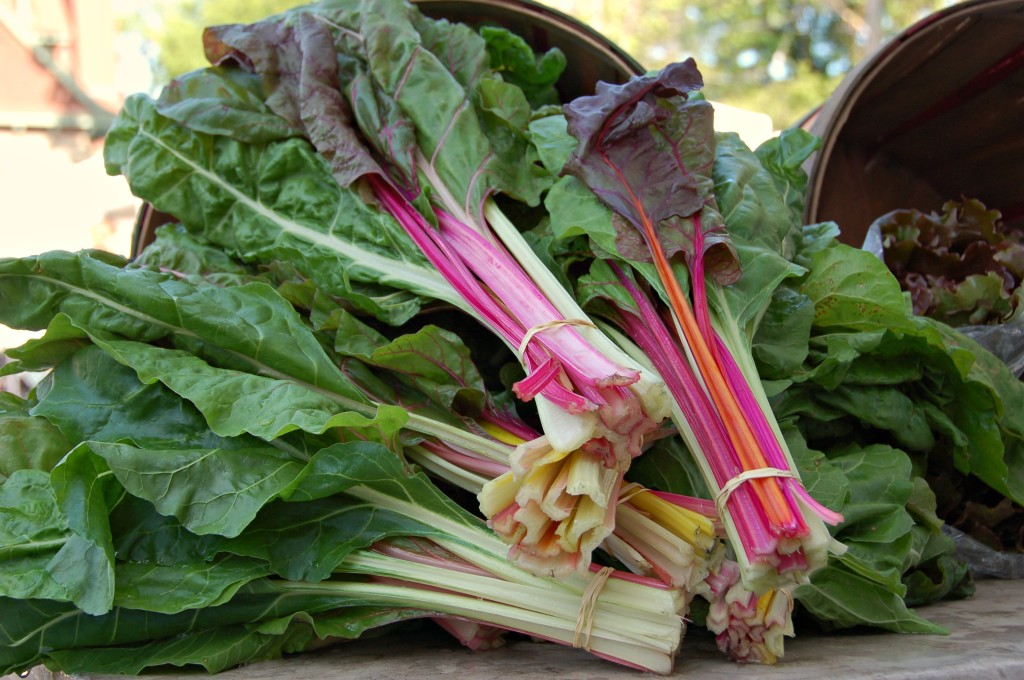
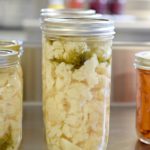
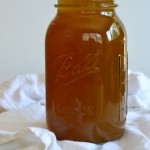

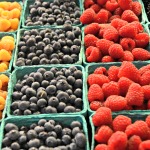


Thanks for the good article! I’d like to add that even if the produce is not “USDA Organic”, that does not necessarily mean it wasn’t grown with basically organic methods. “USDA Organic” is a government regulated label that requires that farmers jump through a lot of hoops. Also consider that something you buy at a regular grocery store that is marked “USDA Organic” could have traveled thousands of miles to reach you, as opposed to something you buy from a local producer that may not be 100% organic.
Very well said! I agree completely that a farmer may be using organic methods but doesn’t want to jump through all the hoops to claim organic status – exactly why it is so crucial to talk to the farmers about how they farm.
Love this, and was so happy to hit the Green City Market last week! I missed the season on ramps but oh well, next year.
One thing I’ve found that I love about shopping at the market is the anticipation of what’s coming and gorging (within reason) when it finally appears. I will eat a quart of strawberries in one sitting, easy, and will do so for pretty much as long as I can get them. I will not buy strawberries, cherries, tomatoes, or corn from the grocery store because they aren’t even pale imitations of the real thing. Strawberries and tomatoes that are red all the way through (they aren’t supposed to be 3/4 white in the middle!)!
I’d also add as an addendum to #3 and #6, shopping at the farmer’s market will not necessarily save you money. I pretty much double (at least) my grocery budget during peak farmers market season as I try to get as much produce as possible from there (though I don’t have a picky eater to deal with, except one who likes tomatoes out of season, which I still don’t understand), but I also have been preserving a lot in the past 2 years. I haven’t bought jam, ketchup, tomatoes, salsa, and probably some others I’m forgetting in at least that long, even during winter.
Not everyone uses the market that way I (and you) do, but it’s really frustrating when there’s this belief that a farmers market is always dirt cheap. Even the farm stands in my hometown tend to cost as much as the grocery store now, but to me the extra cost is balanced by flavor, freshness, and sustainability.
I agree with everything you say, Christina. My first value when shopping for food is taste. I want the best-tasting version of everything I am buying possible and I am lucky enough to be able to pay extra for that flavor. Often the farmers market is THE way to get the best-tasting fruits and vegetables and that is exactly why I shop there. Obviously not everyone can make taste and freshness their highest value when shopping. But there are bargains to be had at the farmers market if you know what to look for.
From a meat farmer’s perspective, it’s particularly important to speak with us! We can’t afford to buy all organic feed, but we do whatever we can to give our animals an extremely good life and a variety of feeds that we mix ourselves, to try and offset the fact that we can’t afford the all-organic. Plus, our animals eat great quality hay, forage and grass, which is definitely much better than a feed lot situation. And all that costs more. It’s difficult to balance all we do with the price, and I understand that sometimes it seems too expensive. But we always try to accommodate our customers and work with them on getting the best cuts for the money.
Thanks so much for chiming in with the farmer’s perspective! Your farm is a perfect example of one in which you are doing everything to treat your animals well and produce a superior product without the organic label. But to my mind, the practice is much more important than a label!